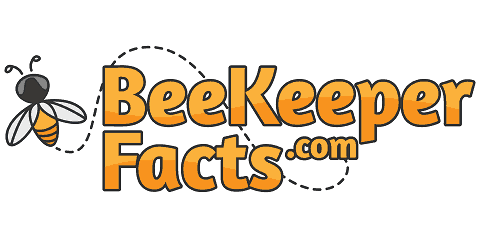How hard is it to start beekeeping? How much work is it?
Are you thinking about becoming a beekeeper? There are many people who have been bitten by the beekeeping bug and can’t seem to get enough of these buzzing insects! But is it hard?
Beekeeping is not easy but the experience is both rewarding and fun. Beekeeping can be time consuming, expensive, physically demanding, and requires patience. There are many hazards your bees will face, such as pest infestation, parasites, predators and disease.
There are many factors to consider before becoming a beekeeper. In this article, I will discuss what you can expect when learning how to start beekeeping and some of the considerations you should think about before getting started.
How Hard Is Beekeeping?
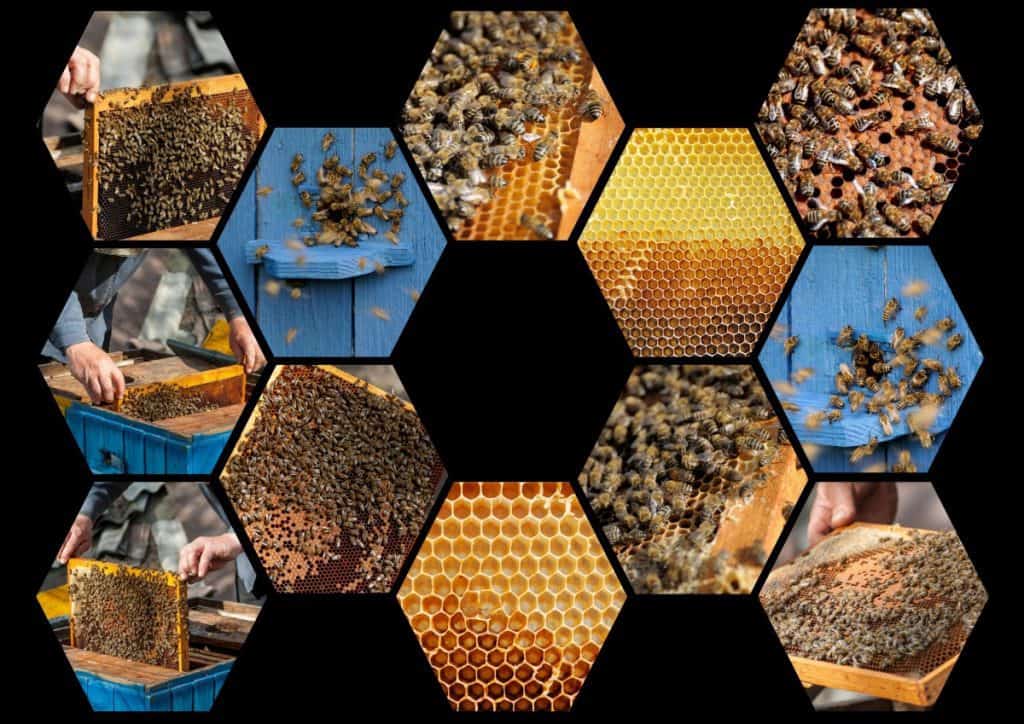
Beekeeping is not for everyone and can be physically demanding work, time consuming, and yes, you will get stung. As a beginner beekeeper there is a lot to learn, which is also part of the fun, but here is a list of some of the basic things you will learn as a new beekeeper:
1. Beekeeping equipment – the type of equipment you choose will depend on your budget, location, physical abilities, and what you’re trying to achieve. Are you hoping to harvest honey, or simply to help pollinate your garden?
Not matter your goal, you will require some basic beekeeping equipment to get you started. There are 3 main types of beehives that the majority of beekeepers use: The Langstroth, The Warre, and the The Top Bar.
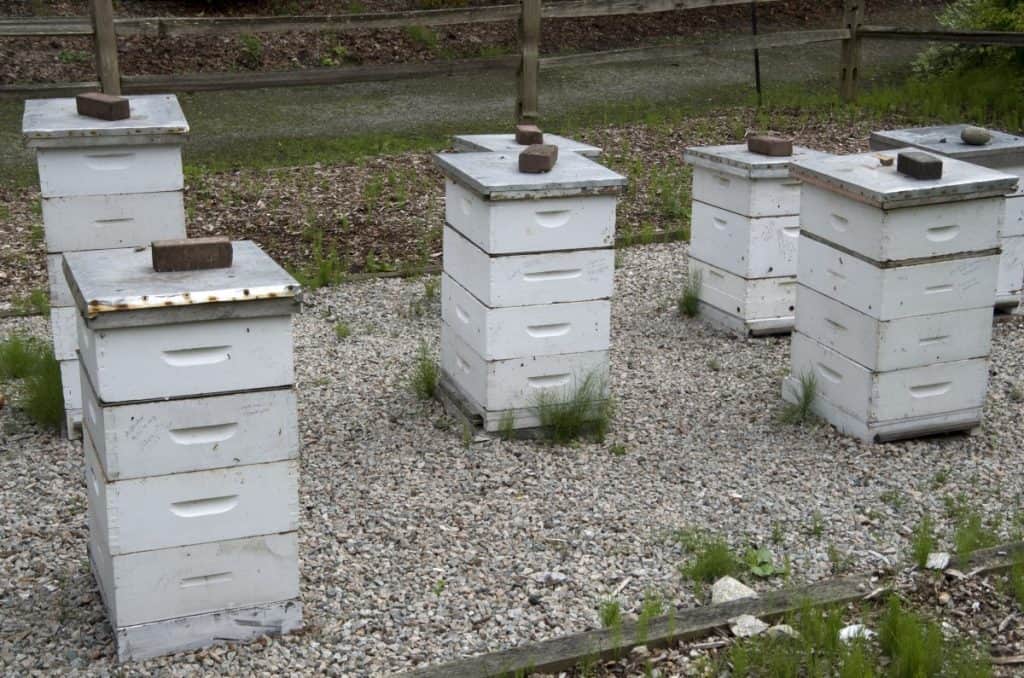
It is most common for people to buy their first hive and I would recommend purchasing either a basic beginner kit or a deluxe starter kit depending on your budget. This will save you some money and includes the basic equipment you’ll need to start.
A starter kit will give you a good introduction to the basic beekeeping equipment you need to start with. You will become familiar with how to put together your hives, and how all the wooden-ware (hive box, frames, bottom boards, hive covers and hive stands) fits together.
You will also learn how to use a hive tool on a regular basis. You will use your hive tool every time you inspect a hive. It is used to loosen, scrape up propolis and wax, lift frames from the hive, and open the hive. You can also use it to remove the venom sac from your skin if you’ve been stung.
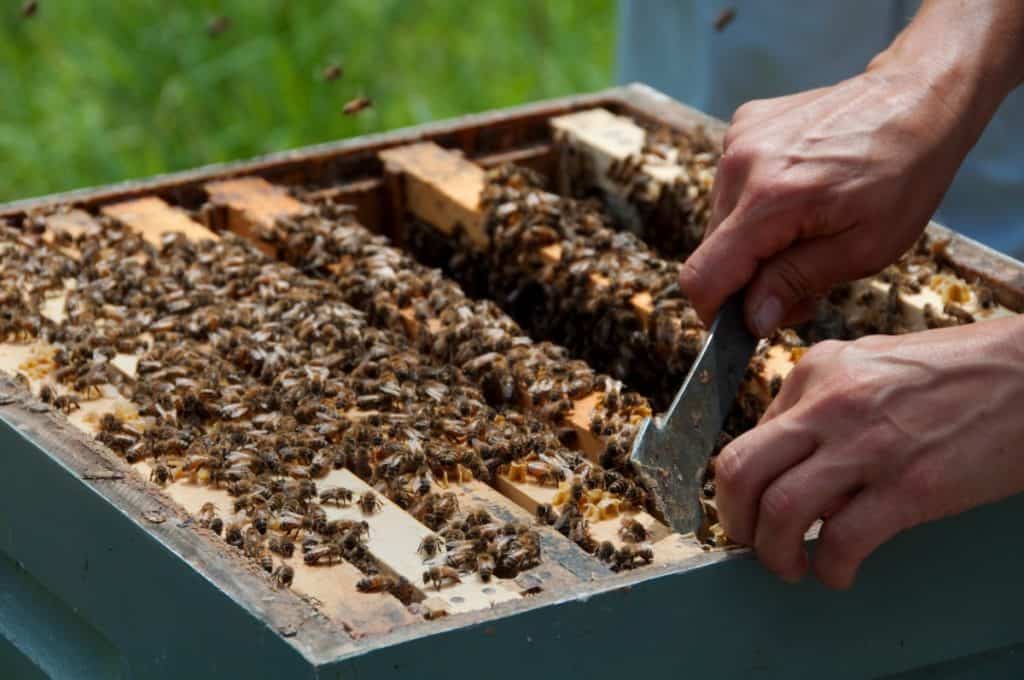
The last piece of equipment you will be using during every inspection is a bee smoker. A bee smoker is used to calm bees while you inspect them. There are several different versions of smokers but a basic one works best. It does take some practice to light it and certain fuels work better than others. Here is a link to some of the best fuels to use for your beehive smoker.
2. Protective equipment – you will become very familiar with the use of protective gloves, a jacket or full protective bee suit, or a simple hat and veil.
As you gain experience you will choose what works best for you. Some beekeepers will only use a jacket with hat and veil, while others prefer a full bee suit. As a beginner I would recommend always starting with a full bee suit.
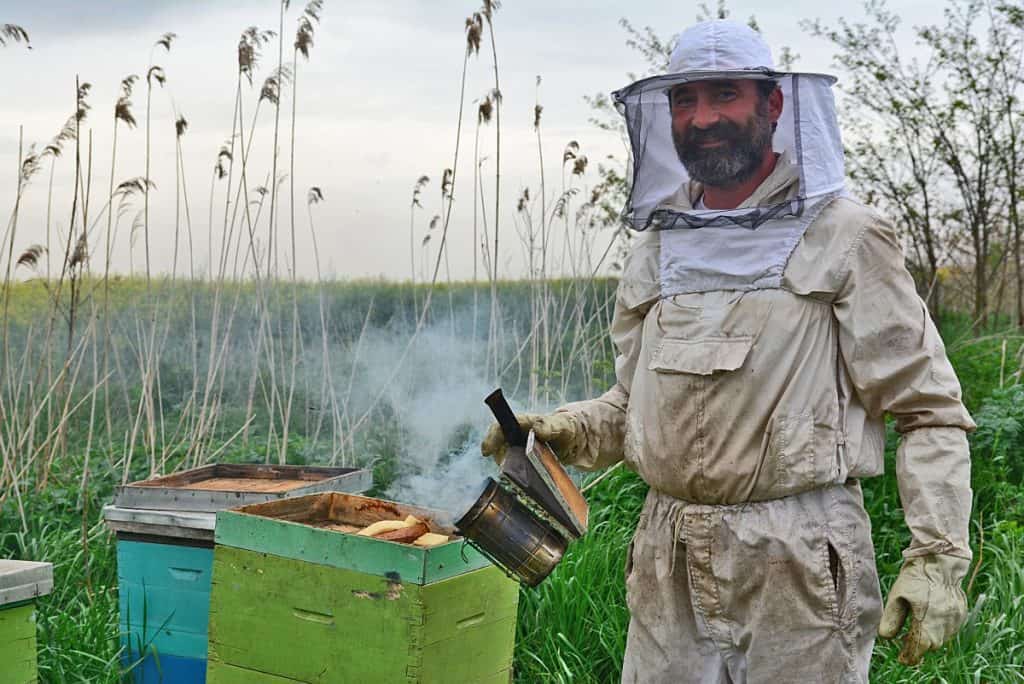
Keep in mind you’re often out in the hot sun wearing a a bee jacket or full bee suit and you will quickly become very hot and uncomfortable. I always recommend buying a vented jacket or suit. You will thank me in the hot summer months.
3. Bee Stings – you will get stung, even through a bee suit. Are you ok with this? Do you have bee or insect allergies? A bee suit or jacket will protect you from the worst of it but it’s going to happen. Using a bee smoker, protective suit and working with your bees in a calm and efficient manner will reduce stings a lot. But you will still get stung on occasion.
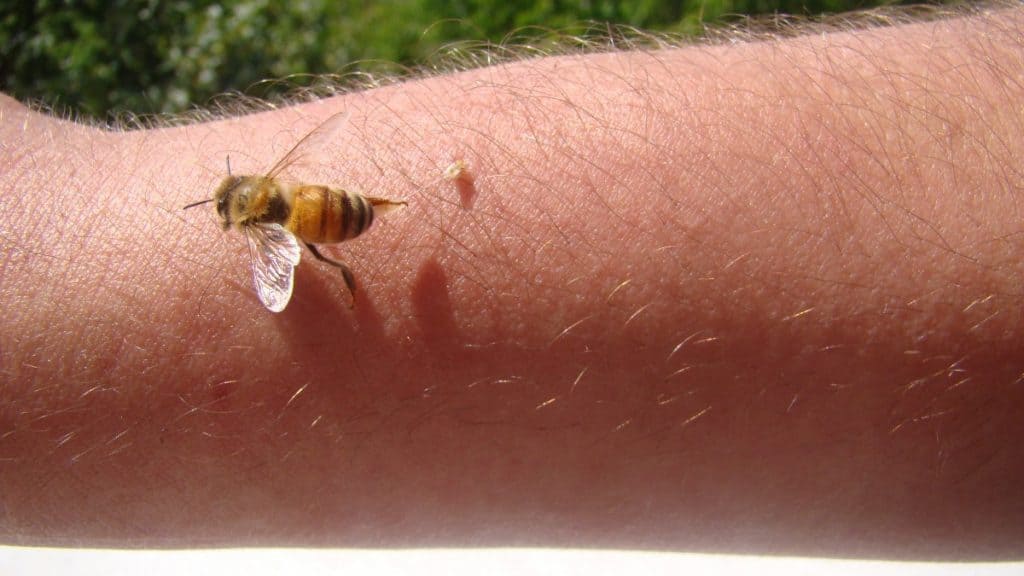
4. Purchasing Bees – As a beginner you need to get your bees from somewhere. It is unlikely you will be catching swarms yet, so you will have to purchase your bees from a local beekeeper or large supplier.
There is two ways to purchase bees and you will learn the important differences between a NUC (Nucleus) colony and a Package of bees, and more importantly how to install them into your new hive boxes.
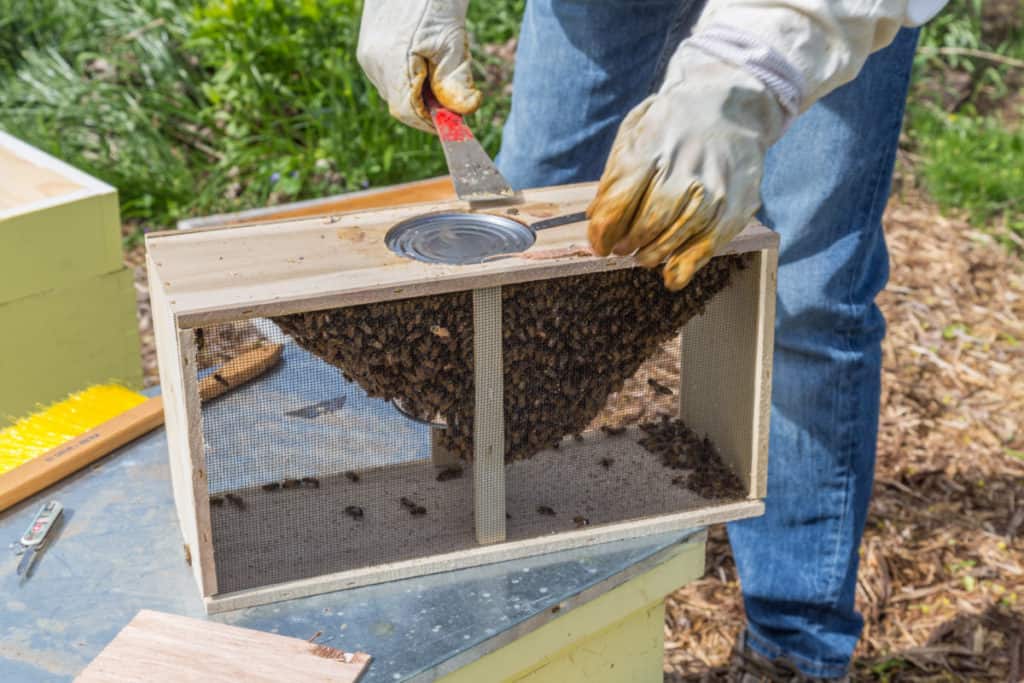
And for more info about nucs and packages of bees, I wrote an in depth article all about the pros and cons of buying nucleus colonies vs a package of bees that I encourage you to read!
I always recommend buying 2 hives as a beginner. One hive maybe stronger than the other, or one of your hives may simply die or become queen-less. Also, you will be learning and you will make mistakes as you manage your hives.
5. Inspecting your hives – this is one of the most rewarding activities. I would recommend regular inspections of your hives on a weekly basis. But, as a new beekeeper you should really observe them on a daily basis to familiarize yourself with the normal day to day activity of your hives.
Generally, the inspections will take between 30 min to 1 hour per week. As you gain experience you will get much faster at inspecting your hives and performing regular maintenance.
6. Finding the queen – This can be difficult when new to beekeeping and will become easier with practice. If you purchased your queen, she’ll likely come marked already and be easier to spot. If not marked it will take you a little more time to find her.
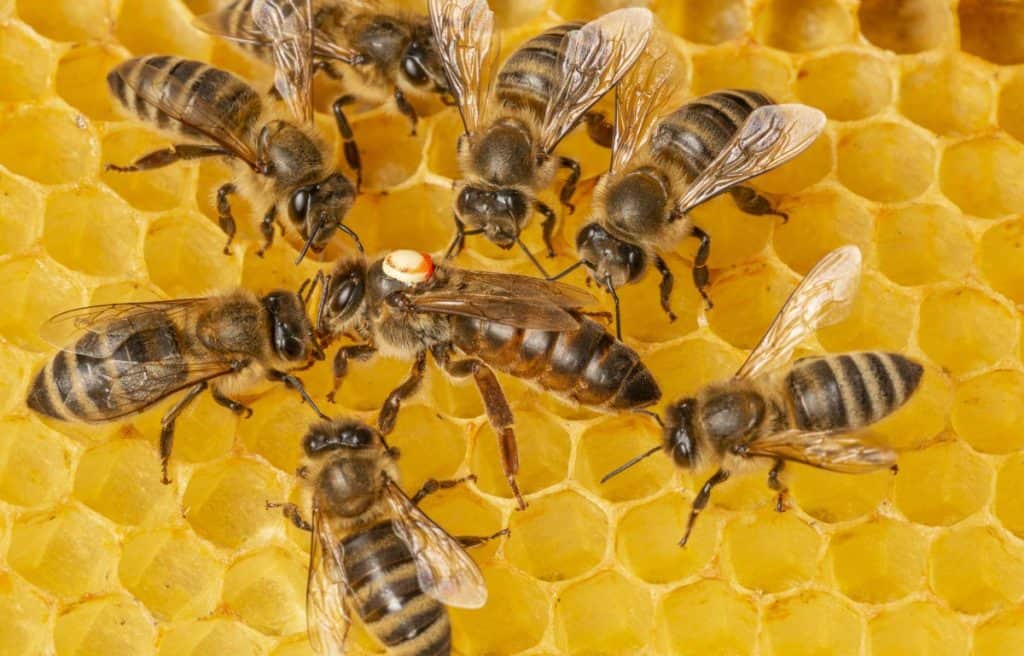
I recommend always trying to locate the queen bee with every hive inspection. You want to ensure your queen is healthy and actively laying eggs.
7. Keeping your bees healthy – if you purchased your bees, especially a package of bees, they will require more assistance at the beginning. You will need to feed your bees (sugar syrup, and supplemental feeding) when you first receive them. It is common practice to feed new hives for at least the first month.
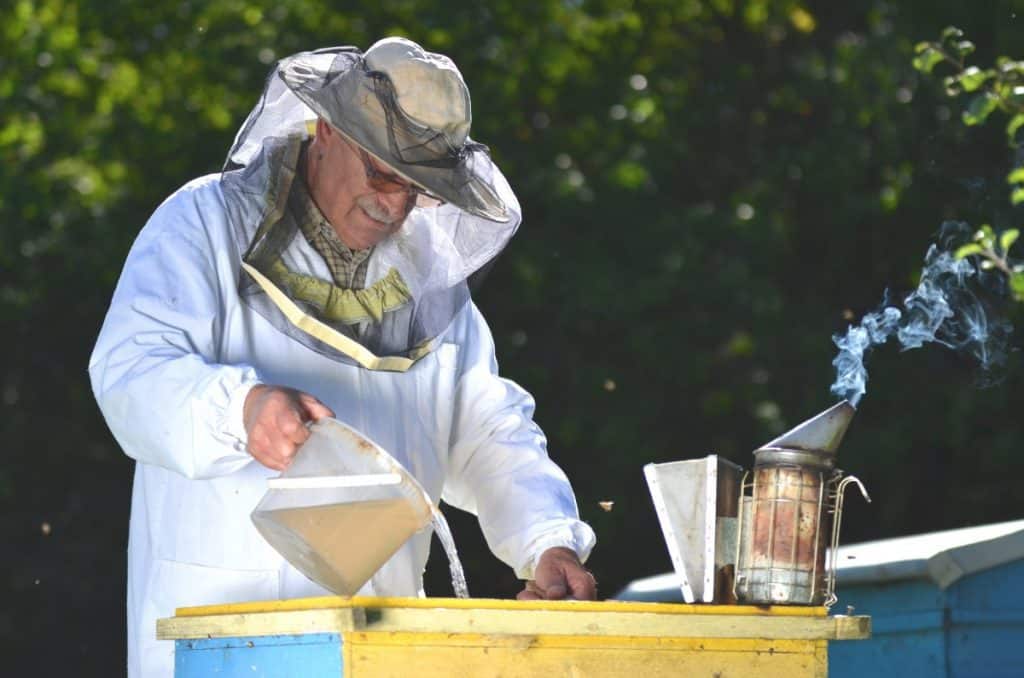
Your bees will also require treatments to keep them healthy. Treating for varroa mites is one of the most common treatments that all beekeepers have to deal with these days, no matter your location. It is recommended to treat your bees within the first month of receiving them, and is another added expense to beekeeping. You will need to monitor your mite count very closely to ensure your bees continue to stay healthy, especially as they prepare for the winter months.
There are other pests that your bees will likely encounter though these will vary by your region. Skunks, bears, wasps, and wax moths to name just a few. I recommend speaking with local beekeepers about the common local pests and how to deal with them.
8. Harvesting Honey – If you end up extracting honey this does take a lot more time, requires more equipment, and can be pretty expensive. But it is unlikely you’ll be harvesting honey during your first year of beekeeping. It is more common to begin harvesting in your second year once your bee colonies are stronger and established. This also gives you time to plan for your first honey harvest
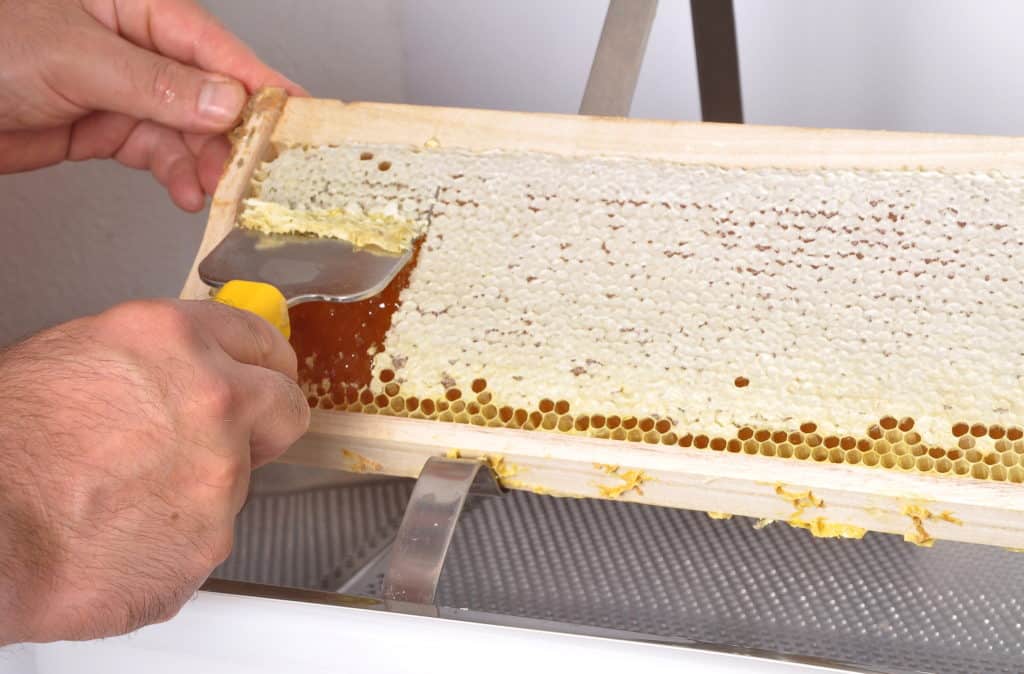
Keep in mind harvesting honey is physically demanding since honey supers can weigh upwards of 70+ pounds filled with honey.
When you are ready to start harvesting honey check out this beginners guide to tangential honey extractors. This guide will explain what a tangential extractor is, the best methods of use, choosing the correct size, how much they cost, and where to buy one.
And for more info about harvesting honey, I wrote an article all about how many times you can harvest honey in a year that I recommend for you to read.
9. Preparing for winter – you will learn how to prepare your bees for the winter months. Of course winter preparations will differ considerably depending on your location. What you due in Florida will be quite a bit different if your in northern states or Canada.
In northern regions it is common to wrap hives in the winter, unless you have temperature controlled indoor storage.
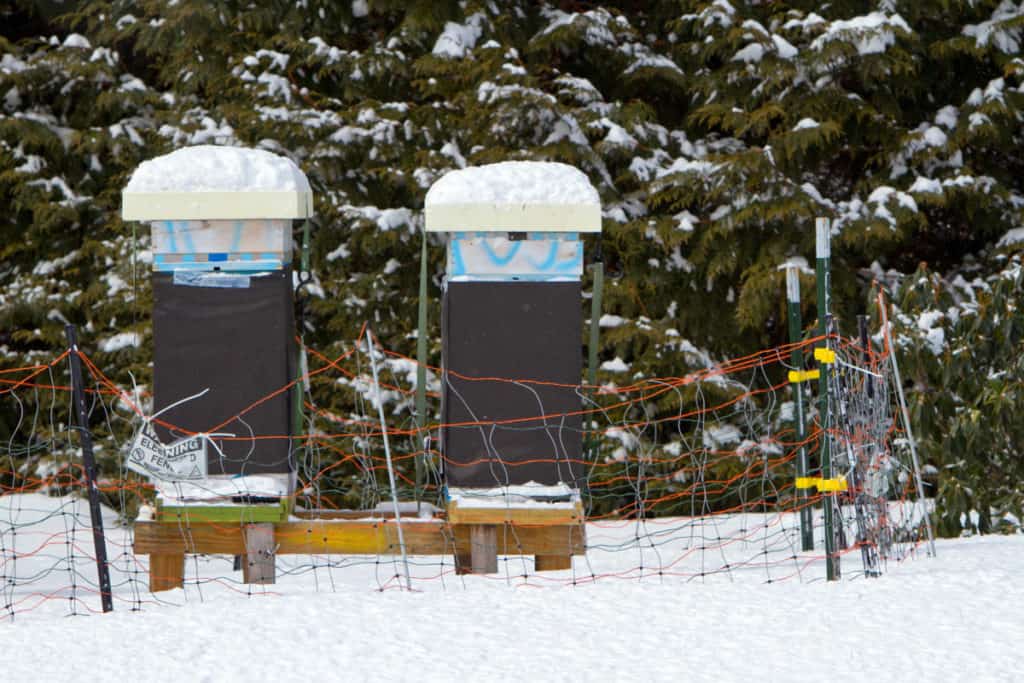
Preparing your hives to survive the winter months can be quite a bit of work and requires planning. Your bees will need enough food stores to survive, treatments and protection against local weather conditions, not to mention keeping local pests away.
And I wrote an article about getting your hives ready for winter called how much honey do your bees need to survive winter that is also a good read!
This brings me to the next topic – meeting local beekeepers and finding a mentor to assist with your learning.
10. Meet other beekeepers – beekeeping is all local and your best chance of success is to learn from local beekeepers. Unfortunately most beginner beekeepers quit within the first 2 years and I don’t want that happening to you!
Beekeeping does have a steep learning curve, requires patience, can be expensive, and an investment in time to learn. I recommend connecting with local beekeepers that may offer an introduction to beekeeping class, local clubs or associations and of course beekeeping books and online tutorials.
11. Local Laws & Registration – Every region is a little different and some areas require you to register all of your hives. Certain regions may not allow honey bee hives in residential areas and may have land requirements for hives.
Your best resource for the legal requirements in your area is again local beekeepers.
How Expensive Is It To Start Beekeeping?
It will cost you between $1100 to $1200 for initial start-up costs to get started in beekeeping. This is the cost to setup two hives for your first season. It is recommended that you start with two hives because both hives will progress at different rates and experience different issues. This way you can easily rescue a failing hive with help from the other one.
And for a full break down on the costs of beekeeping, I wrote an article all about how expensive beekeeping is a hobby that I encourage you to read!
How many acres do you need to raise bees
The amount of land you may need will depend on the number of hives you’re planning to keep. Some beekeepers recommend 1 acre per colony but that does seem a bit excessive.
The number of colonies is dependent on local climate and foraging conditions. But 1/4 acre could easily support 2 or more colonies if they have good local foraging. Keep in mind a single hive can forage up to 8000 acres and bees will fly a long distance to forage.
As I mentioned above, your local laws and regulations will likely dictate how many hives you can raise and where you can locate them.
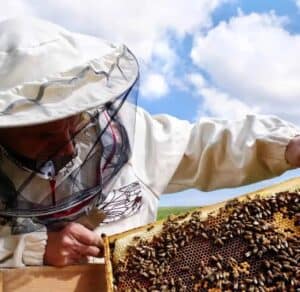
Joseph Davis
My goal is to show that anyone can take up beekeeping and it can be a very rewarding hobby. I strive to share my experiences and answer any questions you may have.
